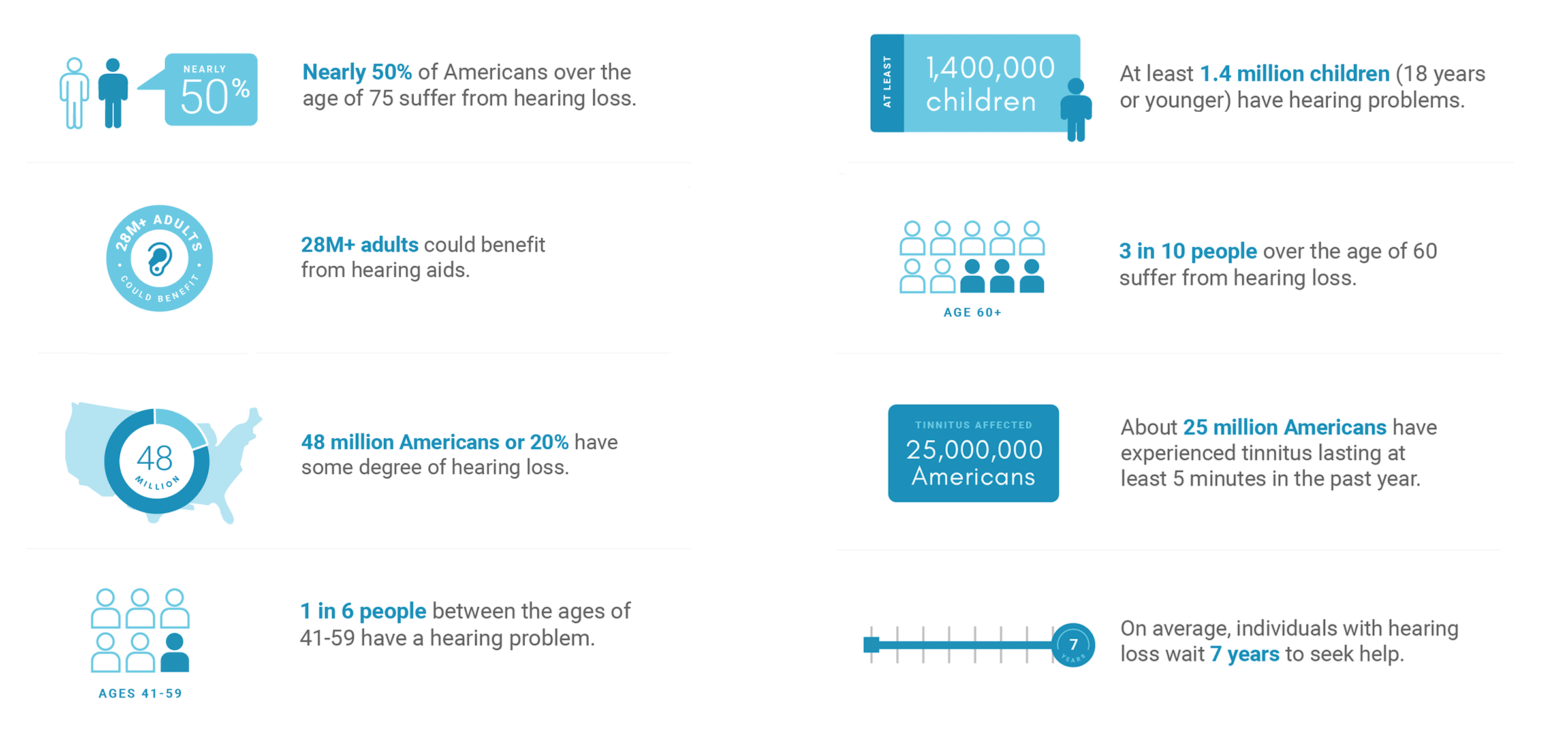Researchers have found that moderate hearing loss triples the risk for dementia while individuals with severe hearing loss are 5 times more likely to develop dementia. Caring for those with Alzheimer’s and other dementias will total an estimated $277 billion, making it the most expensive disease in America.

Improved hearing
enhances quality of life.
Our network of providers will ensure you receive the professionalism and superior care that you seek and deserve.
Learn moreHearing loss can have a detrimental effect on one’s life.
Untreated hearing loss can lead to:
Impaired memory
and ability to learn new tasks
Reduced alertness
and increased risk to personal safety
Reduced job performance
and earning power
Irritability
negativism and anger
Fatigue
tension, stress and depression
Avoidance
or withdrawal from social situations
Hearing loss is linked to several comorbid conditions.
Hearing loss has been linked to the following degenerative diseases and conditions.
Additional Hearing Health Statistics




